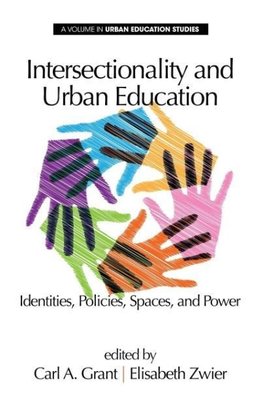
-
 Anglický jazyk
Anglický jazyk
Intersectionality and Urban Education
Autor: Carl A. Grant
A volume in Urban Education Studies Series
Series Editors Nicholas D. Hartlep, Illinois State University,
Thandeka K. Chapman, University of California, San Diego and Kenny Varner, Louisiana State University
In...
Viac o knihe
Na objednávku
98.21 €
bežná cena: 111.60 €
O knihe
A volume in Urban Education Studies Series
Series Editors Nicholas D. Hartlep, Illinois State University,
Thandeka K. Chapman, University of California, San Diego and Kenny Varner, Louisiana State University
In urban education, "urban" is a floating signifier that is imbued with meaning, positive or negative by its users. "Urban"
can be used to refer to both the geographical context of a city and a sense of "less than," most often in relation to race and/
or socioeconomic status (Watson, 2011). For Noblit and Pink (2007), "Urban, rather, is a generalization as much about
geography as it is about the idea that urban centers have problems: problems of too many people, too much poverty, too
much crime and violence, and ultimately, too little hope" (p. xv). Recently, urban education scholars such as Anyon
(2005), Pink and Noblit (2007), Blanchett, Klinger and Harry (2009), and Lipman (2013) have elucidated the social
construction of oppression and privilege for urban students, teachers, schools, families, and communities using
intersectionality theories. Building on their work, we see the need for an edited collection that would look across the different realms of urban education-theorizing
identity markers in urban education, education in urban schools and communities, thinking intersectionally in teacher education & higher education, educational policies
& urban spaces-seeking to better understand each topic using an intersectional lens. Such a collection might serve to conceptually frame or provide methodological
tools, or act as a reference point for scholars and educators who are trying to address urban educational issues in light of identities and power. Secondly, we argue that
education questions and/or problems beg to be conceptualized and analyzed through more than one identity axis. Policies and practices that do not take into account
urban students' intertwining identity markers risk reproducing patterns of privilege and oppression, perpetuating stereotypes, and failing at the task we care most deeply
about: supporting all students' learning across a holistic range of academic, personal, and justice-oriented outcomes.
Can educational policies and practices address the social justice issues faced in urban schools and communities today? We argue that doing intersectional research and
implementing educational policies and practices guided by these frameworks can help improve the "fit." Particular attention needs to be paid to intersectionality as a lens
for educational theory, policy, and practice. As urban educators we would be wise to consider the intertwining of these identity axes in order to better analyze educational
issues and engage in teaching, learning, research, and policymaking that are better-tuned to the needs of diverse
students, families, and communities.
- Vydavateľstvo: Information Age Publishing
- Rok vydania: 2014
- Formát: Hardback
- Rozmer: 240 x 161 mm
- Jazyk: Anglický jazyk
- ISBN: 9781623967338


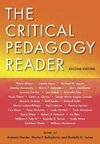
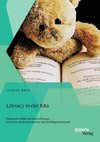
 Nemecký jazyk
Nemecký jazyk 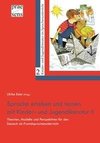

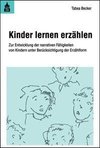
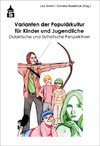





 Španielsky jazyk
Španielsky jazyk